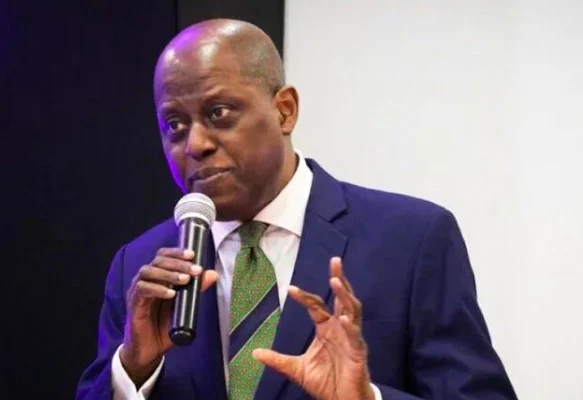By Tony Obiechina, Abuja
The Governor of the Central Bank of Nigeria, Olayemi Cardoso, says the new capital requirement for banks operating in the country will enhance their capacity to drive financial inclusion.
Cardoso stated this at the second International Financial Inclusion Conference themed, Inclusive Growth: Harnessing Financial Inclusion for Economic Development, held in Lagos on Tuesday.
He said, “In line with its efforts to deepen financial inclusion, the Central Bank of Nigeria recently introduced new minimum capital requirements for banks. This strategic move ensures that banks are well-capitalised, enabling them to take on greater risk, particularly in underserved markets.
“With a stronger capital base, banks can provide more loans and financial products to MSMEs, rural communities, and other vulnerable segments that have previously struggled to access formal financial services.
“This policy not only strengthens financial stability but also serves as a catalyst for inclusive growth. By enabling banks to extend more credit to MSMEs, we enhance job creation and productivity. Furthermore, with increased capital, banks can invest in technology and innovation crucial for driving digital financial services such as mobile money and agent banking.”
The governor added that these technologies are key to breaking down geographic and economic barriers, bringing financial services to remote areas.
“Financial inclusion has the potential to unlock significant economic growth, particularly through the empowerment of small and medium-sized enterprises (SMEs), women, and other vulnerable segments of the population. SMEs are responsible for over 80 per cent of employment in Nigeria, yet many struggle to access the credit needed for expansion.
“Financial inclusion for SMEs is essential to unlocking the full potential of this sector, and the Nigerian government remains committed to supporting these enterprises. Similarly, women play a critical role in driving inclusive growth. Research shows that when women are financially empowered, they reinvest in their families and communities, creating broader social and economic benefits. Let’s clap for the women.
“Yet women in Nigeria are disproportionately excluded from the formal financial system. The Central Bank of Nigeria, recognising this, has made significant strides in promoting financial inclusion for women and youth, particularly through frameworks aimed at closing gender gaps and regulatory support for digital platforms that offer easier access to financial services for these vulnerable groups,” Cardoso stated.
The CBN governor further affirmed that the adoption of digital payment channels, leveraging mobile technology, remains one of the most transformative tools for financial inclusion.
READ ALSO:
- Military Strikes Hit Two Sokoto Villages, 10 Dead
- Wizkid, Omah Lay, Zlatan Perform As Gunna & Olamide Kick Off Flytime Fest
- Why Fans, Enemies Now Call Me C. Ronaldo Of Nollywood — Yul Edochie
- Fulham Ready For War Against Chelsea — Iwobi
- The Real Housewives Of Lagos Reveals Cast Members Ahead Of Season 3


